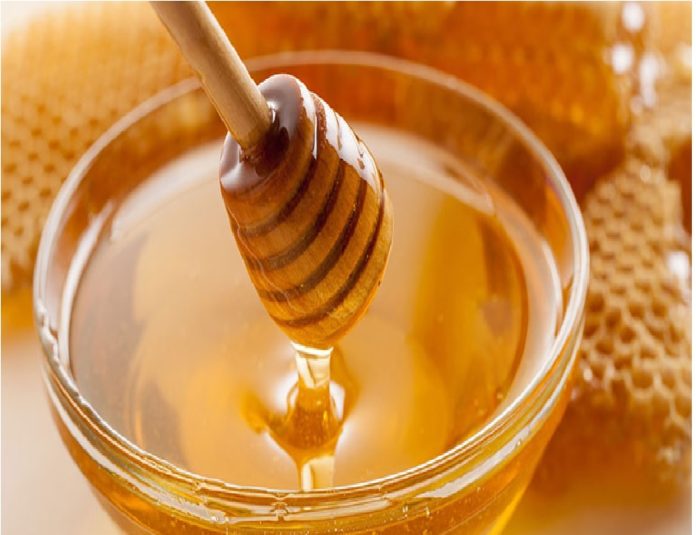New Delhi (NVI): In the lab tests conducted by CSE food researchers, honey from 10 out of the 13 top brands failed the Nuclear Magnetic Resonance (NMR) test and was found to be adulterated with addition of sugar syrup.
The Centre for Science and Environment (CSE) food researchers selected 13 top and smaller brands of processed and raw honey being sold in India.
Samples of these brands were first tested at the Centre for Analysis and Learning in Livestock and Food (CALF) at National Dairy Development Board (NDDB) in Gujarat.
Almost all the top brands (except Apis Himalaya) passed the tests of purity, while a few smaller brands failed the tests to detect C4 sugar – call it basic adulteration using cane sugar.
However, when the same brands were tested using Nuclear Magnetic Resonance (NMR) – laboratory tests currently being used globally to check for such modified sugar syrups – almost all big and small brands failed.
Out of the 13 brands tests, only three passed the NMR test, which was done by a specialised laboratory in Germany.
“What we found was shocking,” says Amit Khurana, programme director of CSE’s Food Safety and Toxins team. “It shows how the business of adulteration has evolved so that it can pass the stipulated tests in India. Our concern is not just that the honey we eat is adulterated, but that this adulteration is difficult to catch. In fact, we have found that the sugar syrups are designed so that they can go undetected.”
Honey samples from leading brands such as Dabur, Patanjali, Baidyanath, Zandu, Hitkari and Apis Himalaya, all failed the NMR test.
Only 3 out of the 13 brands – Saffola, MarkfedSohna and Nature’s Nectar (one out of two samples) — passed all the tests.
Based on the findings, 77 per cent of the samples were found to be adulterated with addition of sugar syrup.
Notably, as of August 1, 2020, NMR tests have been made mandatory in India for honey that is meant for export, suggesting that the Indian government is aware of this adulteration business and the need for more advanced tests.
According to the globally accepted definition of honey by the Food and Agriculture Organization’s (FAO’s) Codex Alimentarius Commission: “(it) is the natural sweet substance produced by honeybees from the nectar of plants or from the secretions of living parts of the plants or excretions of plant sucking insects on the living parts of the plants, that bees collect, transform by combining with specific substances of their own, deposit, dehydrate, store and leave in the honey comb to ripen and mature.”
If honey is adulterated with sugar it is not honey.
“It is a food fraud more nefarious and more sophisticated than what we found in our 2003 and 2006 investigations into soft drinks; more damaging to our health than perhaps anything that we have found till now– keeping in mind the fact that we are still fighting against a killer COVID-19 pandemic with our backs to the wall. This overuse of sugar in our diet will make it worse,” said CSE director general Sunita Narain today, while releasing a new investigation into honey adulteration.
“This is immensely worrying, as it will further compromise health in the troubled times of COVID-19. We know that households today are consuming more honey because of its intrinsic goodness – antimicrobial and anti-inflammatory properties,” added Narain.
She further stated, “Our research has found that most of the honey sold in the market is adulterated with sugar syrup. Therefore, instead of honey, people are eating more sugar, which will add to the risk of COVID-19. Sugar ingestion is directly linked to obesity, and obese people are more vulnerable to life-threatening infections.”
Reportedly, Food Safety and Standards Authority of India (FSSAI), in the past year, has directed importers and state food commissioners that golden syrup, invert sugar syrup and rice syrup imported into the country was being used for adulteration of honey.
In this connection, CSE tracked down Chinese trade portals like Alibaba which were advertising fructose syrup that can bypass tests.
It also found that the same Chinese companies that advertised this fructose syrup that can beat C3 and C4 tests also exported to India.
CSE then conducted an undercover operation to find out more. It sent emails to Chinese companies soliciting syrups that could pass tests in India. It received replies that syrups were available and could be sent to India.
Chinese companies informed CSE that even if 50-80 per cent of the honey is adulterated with syrup it would pass all stipulated tests. A sample of the syrup that can bypass tests was then sent by the Chinese company as “paint pigment” to get through customs.
CSE also tracked down factory that manufactures syrup to adulterate honey to Jaspur in Uttarakhand. Using the code word for the syrup “all pass”, CSE researchers madecontact and procured a sample.
To understand if the sugar syrups would pass the laboratory tests undetected, CSE then adulterated samples of pure honey.
“What was shocking to find is that adulterated samples with 25 per cent and 50 per cent sugar syrup passed the test of purity. In this way, we confirmed that sugar syrups exist that can bypass the 2020 FSSAI standard for honey,” says Amit Khurana.
Based on the study revelations, CSE now demands the government to stop the import of syrups and honey from China.
It further asks to strengthen enforcement in India through public testing so that companies are held responsible. Government should get samples tested using advanced technologies and make this information public so that consumers are aware and our health is not compromised. It will also hold companies responsible.
“But we as consumers must also become more aware of the honey we eat for its goodness. For instance, we often assume that if honey crystallises then it is not honey. This is not correct. We must start learning the taste, smell and colour of the honey that is natural,” said Narain.
-CHK








